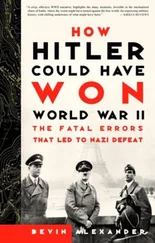The invading armies had been repeatedly instructed that their enemy belonged to an inferior species of humanity and their troops reacted accordingly. On and off the battlefield, Soviet soldiers and civilians alike were routinely subjected to acts of horrific brutality. Torture and murder by the troops under their command were routinely overlooked by the Wehrmacht’s senior officers, who on frequent occasions presided over what was effectively the summary execution of those found to be political commissars, spies or partisans. Such murderous excesses by the Ostheer (Army of the East) were reciprocated in full measure by Soviet troops, who had no qualms about treating Germans as violent criminals against whom no punitive measures were too extreme to merit sanction. On both sides, a lethal combination of loathing and fear gave licence to rare savagery. The descriptions of such incidents proffered by those who participated in them or who watched on without demur were notably self-serving, often defiant and only occasionally laced with shame or disgust. No account of Operation Barbarossa can afford to sidestep this overwhelming evidence of a terrible truth.
Most of those serving in the Red Army fought either from patriotism or to recover their homelands, others from ideological conviction, but all in the knowledge that Stalin’s regime ruled as much by terror as by consent. The Soviet dictator’s paranoid conviction that he was surrounded by ideological saboteurs was allied to a pitiless indifference to the life of others. In war, as in peace, he was swift to exact mortal retribution on those who displeased him. Generals were subjected to summary execution or arbitrary imprisonment. Those who fled the battlefield or surrendered – even in the face of insuperable odds – faced the death penalty, their families punished not only by that disgrace but also by losing livelihoods and pension rights. At Stalin’s behest, the Stavka (the Soviet military high command) established ‘blocking units’ that were deployed behind the front to shoot down those men who withdrew en masse rather than be mown down by the advancing enemy.
Yet the Soviet leader managed to secure the allegiance of the overwhelming majority of the population as they rallied to the cause. As their letters and memoirs (some of which have only recently been recovered from the secret depths of the Soviet archives) reveal, soldiers and civilians endured with the stoic resolve of men and women who were united against the invaders. Many of Moscow’s major landmarks were shrouded by camouflage and the city was placed under curfew. Under constant aerial bombardment, workers managed to dismantle thousands of strategically vital industrial plants, transporting them to safety in the Urals, where they were soon back in full production and at a rapidly accelerating rate of output. In the autumn of 1941, as the Germans threatened the outer ring of Moscow’s inadequate defences, the capital was placed under a state of siege; miscreants or those who breached the curfew were shot on sight. Under Zhukov’s overall direction, tens of thousands of ill-equipped volunteers – men and women, young and old – worked with dogged resolve to shore up the city’s inner barricades, digging trenches and tank traps in the deep mud or frozen ground of a harsh Russian winter. A regime that ruled by terror alone would never have been able to command the allegiance of a people without whose commitment defeat would have been certain.
The crimes against humanity committed on the battlefield by both sides were dwarfed in scale by the atrocities committed by the Nazis behind the lines. Soviet troops who survived to become prisoners of war were force-marched into captivity. Abused, beaten and whipped along the way, they were also denied medicines, food and water. Tens of thousands died before reaching the makeshift prison camps into which they were herded like animals to huddle behind barbed wire and where they lacked shelter or sanitation or any other of the most basic means of survival. Denied nourishment, some prisoners resorted to cannibalism, but the great majority starved to death. This book chronicles a pitiless brutality that formed an integral part of Operation Barbarossa. By May 1945, some 3 million Soviet soldiers had died in captivity. Two-thirds of these men died from starvation or at the barrel of a gun before the end of 1941.
And there was even worse. In the eastern territories that the Wehrmacht brought under Nazi control in 1941, four Einsatzgruppen (task forces or ‘action squads’), led by senior commanders, roamed from city to city and town to town authorized to commit mass murder. The establishment of the Einsatzgruppen was approved by Hitler and organized by Heinrich Himmler and Reinhard Heydrich, who, as head of the SS and chief of the Reich Main Security Office respectively, were the principal architects of the Holocaust. Initially under orders to execute ‘Jews in Party and state positions’, the death squads were soon encouraged to kill any Jews – men, women and children – with indiscriminate fervour. The commanders of the Einsatzgruppen were competitive zealots, striving to outdo one another with higher and higher rates of execution. At their instruction, the victims were rounded up, robbed of their belongings, killed by firing squads and buried in mass graves. These killers did not operate alone. The most senior generals in the Wehrmacht – despite their vehement post-war protestations to the contrary – were not only aware of the Einsatzgruppen’s role but also, in many cases, complicit in facilitating it. In every one of the countries invaded by Hitler during Operation Barbarossa, regular soldiers, indigenous police forces and local militia combined to assist the killers in their task. There is copious evidence of this from official orders and accounts as well as reports from the perpetrators themselves and statements from eyewitnesses and those few victims who survived. These testimonies are as incontrovertible as they are dreadful. No adequate description of Operation Barbarossa should exclude them.
In the early weeks of the invasion, this commitment to murder was not matched by efficiency. Gradually, though, the killers streamlined their operations until they perfected a systematic means of shooting large numbers of men, women and children at speed – macabre achievements which they reported to their superiors in cold statistical detail. Within six months of the Nazi invasion, and after a series of gruesome experiments with various kinds of poison gas, the first death camps, among them Auschwitz-Birkenau, came into operation; the industrialization of mass murder had begun. By Christmas 1941 the first million victims of Hitler’s ‘final solution’ had been exterminated, either with guns or in gas chambers. It is a grotesque irony that the most unspeakable crime of the twentieth century was the sole element in the Führer’s apocalyptic vision for the Third Reich that, until the closing months of the war, was not unduly impeded by defeat on the battlefield. To bypass this aspect of Operation Barbarossa would be to avoid identifying one of its most direct and immediate outcomes.
A full account of Hitler’s invasion of the Soviet Union requires consideration of its cause as well as its effect. Operation Barbarossa did not take place in a historical vacuum but was the direct outcome of a high-wire political drama that began following the First World War and the unresolved miseries that engulfed Europe in its aftermath. For that reason – perhaps to the surprise of some readers – Part One of this book opens in the spring of 1922, when the Soviet Union and Germany, so recently at each other’s throats on the First World War battlefields and treated thereafter as pariah states by the rest of Europe, signed a treaty of reconciliation. The European democracies were aghast. The treaty was a diplomatic coup de main that left the British prime minister, Lloyd George, floundering; his painstaking efforts to build a continent-wide consensus in favour of sustainable economic development, and thereby peace and security, was in tatters.
Читать дальше
![Джонатан Димблби Barbarossa: How Hitler Lost the War [calibre] обложка книги](/books/385421/dzhonatan-dimblbi-barbarossa-how-hitler-lost-the-w-cover.webp)



![Traudl Junge - Hitler's Last Secretary - A Firsthand Account of Life with Hitler [aka Until the Final Hour]](/books/416681/traudl-junge-hitler-s-last-secretary-a-firsthand-thumb.webp)







